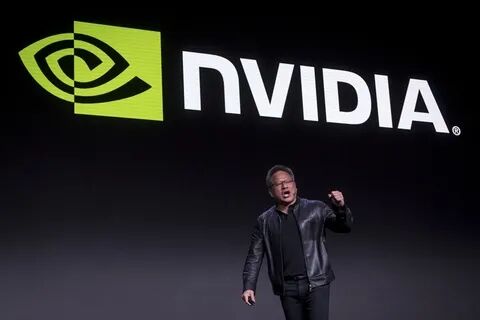
The astonishingly efficient processors, Arm’s business model, and its vast ecosystem are all that NVIDIA’s founder and CEO, Jensen Huang, claims to be acquiring.
Huang is determined to spend $40 billion to acquire the most critical asset in the global mobile chip market. The attitudes of regulators in China, the U.S., and the U.K. will influence this significant global semiconductor shift.
By | Reporters Ye Zhanqi, Zhang Erchi, Qian Tong
“This is truly a once-in-a-lifetime opportunity to combine a leading AI (artificial intelligence) computing company with one that has an astonishing (ecological) breadth, reaching all forms and specifications of the market,” Huang stated during an interview with Caixin reporters on September 14. Just hours earlier, NVIDIA announced its acquisition of chip giant Arm from Japan’s SoftBank Group for $40 billion.Arm is the world’s largest semiconductor IP (intellectual property) supplier, supporting over 90% of smartphone chips. Now, an American company is attempting to buy it from a Japanese company. If successful, the U.S. will control two major chip ecosystems, x86 and Arm, establishing an unassailable position in the CPU field.For 57-year-old Huang, this opportunity is indeed rare. SoftBank founder Masayoshi Son is eager to cash out Arm to recover from significant losses; traditional semiconductor giants are struggling, with Qualcomm just gaining a breather in a protracted antitrust lawsuit, and Intel still suffering from slow process advancements; NVIDIA has just completed its $6.9 billion acquisition of Israeli networking equipment maker Mellanox and is experiencing soaring stock prices, making it ambitious.NVIDIA is the semiconductor company that benefits the most from the AI era. Its main product, the GPU (graphics processing unit), initially designed for gaming and video design, has become an essential infrastructure for AI development. Founded in 1993, the company’s stock price has increased more than twentyfold in the past five years. NVIDIA’s market value surpassed Intel’s in July this year, reaching $300 billion, making it the world’s most valuable chip designer. Huang will not waste the capital market’s offerings, and rumors of the acquisition of Arm quickly spread.The deal for Arm is valued at $40 billion, with $21.5 billion composed of NVIDIA’s stock, requiring the issuance of 44.3 million shares. $1.5 billion in shares will serve as incentives for Arm employees, and another $5 billion will be paid in cash or NVIDIA stock based on Arm’s performance. The confirmed cash portion is only $12 billion. NVIDIA’s liquid assets amount to just $14.7 billion, making this transaction seem unrealistic even six months ago—when NVIDIA’s stock price was only half of what it is now.Spending this $40 billion could move NVIDIA from the periphery to the center of the mobile market. Through smartphones, tablets, and other terminal devices, 70% of the global population uses Arm’s technology, which is as crucial as operating systems. Not only traditional tech companies like Apple, Qualcomm, Huawei, and Samsung rely on Arm, but also newer internet companies like Alibaba and Amazon that have recently ventured into chip-making depend on it. Compared to Intel’s dominant x86 architecture, Arm architecture offers better performance-to-power consumption ratios.Everything is in place, but the question is whether regulators will agree. The last major transaction in the semiconductor industry was Qualcomm’s $44 billion bid for NXP in 2016, which was vetoed by China after passing regulators in other parts of the world. In terms of industry influence, NXP cannot be compared to Arm.This transaction requires approval from regulatory bodies in the U.K., China, the EU, and the U.S., and NVIDIA expects to complete it in about 18 months. Many semiconductor professionals and investors interviewed domestically oppose the deal. Arm is a core IP company serving the global market; “if it is acquired by an American company, once it is ‘choked,’ the IP level could regress by several years, with dire consequences,” which represents the general concern in the domestic tech community.Not only in consumer markets like smartphones, but even in the official office computer systems in China, despite efforts to promote nationalization, domestic CPUs like Tianjin Feiteng and Huawei Kunpeng are also based on Arm architecture, which is seen as one of the most viable paths to independence.C.J. Muse, a semiconductor analyst at investment consulting firm Evercore, suggested whether a perpetual (evergreen) license would be granted to China in exchange for regulatory approval. Huang did not directly respond to this, emphasizing that which company holds the IP does not affect regulation. Arm’s headquarters will remain in the U.K., and most IP also comes from the U.K.; whether Arm belongs to an American or Japanese company will not change the export control situation. He believes that Chinese regulators will appreciate this deal because NVIDIA will bring more solutions to the market, benefiting the Chinese market.Huang just secured approval for the acquisition of Mellanox in China this year, which took nearly a year and involved withdrawing and reapplying materials. Although the scale of these two transactions differs significantly, there are similarities; NVIDIA, Mellanox, and Arm all hold far greater market shares in their respective segments than their competitors. Several individuals familiar with the Mellanox deal told Caixin reporters that NVIDIA faced lobbying opposition from large companies like Intel in the U.S. and from cloud computing firms like Alibaba Cloud in China, who did not want NVIDIA to gain a larger market share in data centers. Sources familiar with the transaction indicated that the Mellanox deal was able to pass in China partly because NVIDIA successfully persuaded several Chinese companies to withdraw their opposition, but achieving this with the Arm deal will be more challenging.From an optimistic perspective, NVIDIA acquiring Arm may not be the worst-case scenario for China. Amid the U.S.-China dispute, suitable buyers globally are indeed few. NVIDIA is led by a Taiwanese-born Chinese, who has long distanced himself from U.S. politics. Despite the soaring stock price, it is still not at the level of “big American companies” like Intel or Apple. An engineer who speaks from a business perspective may not appear hostile to regulators.……The full text contains 9,167 words.
For more content, please clickhereorread the original article
